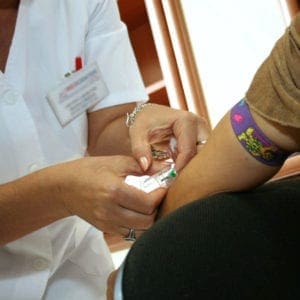 The swift pace in which hotels are being constructed and opened has led many industry experts to question how prepared hotels are for optimizing their revenue potential. This becomes especially apparent in the face of strong competition from both independent properties and established global hotel chains.
The swift pace in which hotels are being constructed and opened has led many industry experts to question how prepared hotels are for optimizing their revenue potential. This becomes especially apparent in the face of strong competition from both independent properties and established global hotel chains.
Many hotels struggle to reach their optimal revenue potential due to poor pre-opening preparation and a lack of in-depth pricing strategies that address varying market demand and conditions. It is no longer suitable to simply build a great property, decorate the rooms nicely and employ adequate staff. An integral component in today’s pre-opening process is optimizing room type configuration, as well as the implementing and integrating revenue management technologies with the hotel’s IT infrastructure and platforms.
There are many areas that need to be covered throughout the pre-opening phase of any hotel, ranging from establishing market segment strategies, comprehensive competitor evaluation, pricing research, pricing processing and forward planning of market demand cycles. It is also important that properties follow a structured, standardized approach to pre-opening to ensure consistent and effective results from day one.
Hotels under development should consider addressing their pre-opening processes in two stages to allow for a mixture of onsite training and strategy preparation. The strategy setting process, in which pre-opening revenue, marketing processes and actions are developed, should be undertaken a minimum of six months before a hotel has their soft opening. It should ideally consist of:
- Strategic hotel analysis that includes a study of the micro market and overall economic factors that could affect the hotel’s performance;
- Finalized competitor analysis, including competitorÊvalue and benefits positioning;
- Set pricing structures based on market conditions and hotel positioning;Ê
- Established channel strategies according to product positioning and market environment and cement Òproduct positioningÓ; I.e. hotel descriptions, roomÊtype descriptions, etc.) through all channels;
- Market segmentation strategies and action plans with a particular focus on business with long lead times (wholesale and groups). This should be developed in collaboration with the sales and marketing department.
A pre-launch process is also critical to ensuring that all stakeholders are fully trained, aligned with strategies and able to implement appropriate revenue management strategies across rooms and ancillary revenue streams. This process should be undertaken three months prior to a hotel’s opening, and should be focused on confirming that all pricing and operational systems are in place. It should also check to ensure that all tools and processes that track key competitor performance data, including daily competitor performance and competitor pricing activities, are in place. Key tools for supporting daily revenue management processes should also be developed at this time, focusing on the development of a comprehensive 365-day demand calendar and the evaluation of tracking actuals and on-the-books business by market segment (room nights and revenues).
Staff should be provided guidance and support during the hotel’s crucial soft opening period, which typically occurs between 60-90 days after its initial opening. Once a new hotel has opened, continued staff support and additional training will ensure that staff members are able to meet their defined strategic goals and handle developing market expectations.
Throughout the entire pre-opening preparation process, it is important that both the corporate revenue management team and general hotel manager are briefed at regular intervals, given honest feedback about potential issues, notified of successes and alerted when critical milestones have been achieved. It is key to re-evaluate the original assumptions and strategies developed during opening, since pre-opening plans and post-opening realities often differ. Hotels need to be flexible in the initial stages of opening so that they can adjust strategies and respond to outcomes and evolving market conditions. This allows hotels to prepare staff and get overall management buy-in for the hotel’s approach to revenue management, which will help ensure that their revenue management systems are used effectively.
If a hotel is to succeed in today’s increasingly competitive marketplace, it must be able to meet the challenges that varying demand brings upon opening. The success of a particular hotel or resort can be determined in the initial few months, both in terms of industry reputation and financial success. This makes the implementation of an appropriate and flexible revenue management program essential to a hotel’s entrance into the market at the right price, in the right channels and at the right time.
About the Author:
IDeaS have been helping the world’s hospitality businesses maximize their revenue performance. A pioneer and global technology leader, IDeaS offers industry-leading revenue management solutions for business of all types and sizes in the global hospitality and travel industries. IDeaS transform the right data into clear and actionable insight, so that clients can price, forecast and report with speed and confidence, improving business performance. Throughout IDeaS’ history, their mission has been the same. They want to make revenue management so user-friendly, insightful and profitable that you wouldn’t dream of doing it any other way.



















